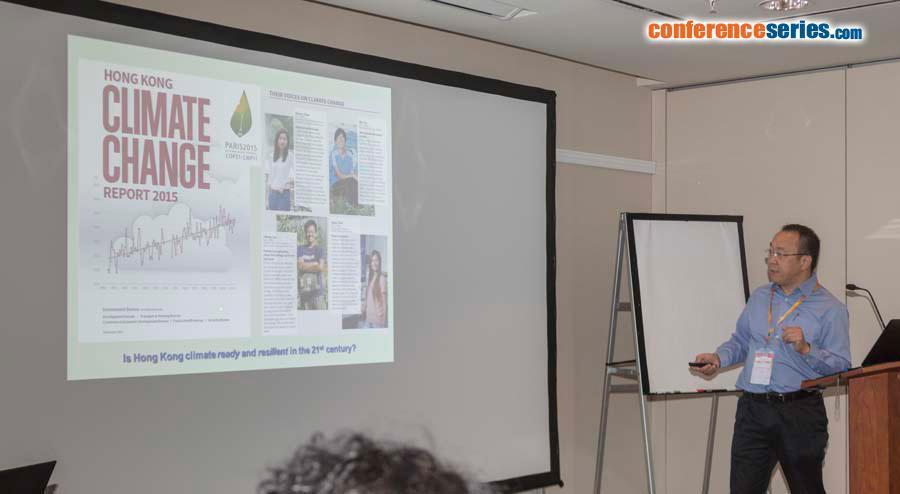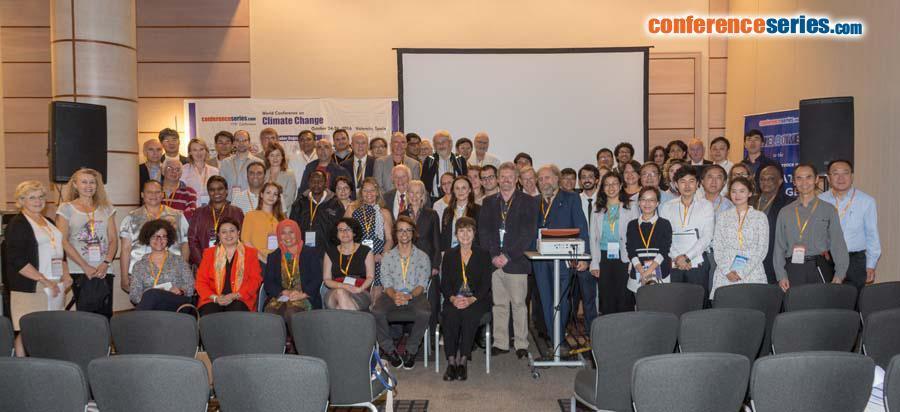
Yongqin David Chen
The Chinese University of Hong Kong, Hong Kong
Title: Faster increases in apparent than air temperature under climate warming
Biography
Biography: Yongqin David Chen
Abstract
Apparent temperature, an indicator of temperature human perceives, is mainly determined by air temperature, humidity and wind speed. Global warming indicated by increasing air temperature alters climatic and hydrologic circulations, and hence changes humidity and wind speed, which jointly influence apparent temperature. Here we study the global changes in apparent temperature and compare these changes with air temperature to investigate how human feels about continuous global warming. Results show that under climate warming, apparent temperature increases faster than air temperature. This phenomenon is especially remarkable in the tropics and subtropics and under high emission scenario. During 1981-2000, apparent temperature in the tropics is 0-4oC higher than air temperature, and then increases to 3-6oC higher during 2081- 2100 under Representative Concentration Pathway 8.5. The apparent temperature in the tropics is projected to reach >35oC, implying severe health impacts. Continental average of apparent temperature is 1.5oC lower than air temperature in 2000, and turns to 0.25oC higher by the end of 21st century. The faster increment in apparent temperature is a combined effect of stronger heat stress and weaker cooling effect caused by increasing air temperature with negligible changes in relative humidity and wind speed.
Speaker Presentations
Speaker PDFs
Speaker PPTs Click Here




